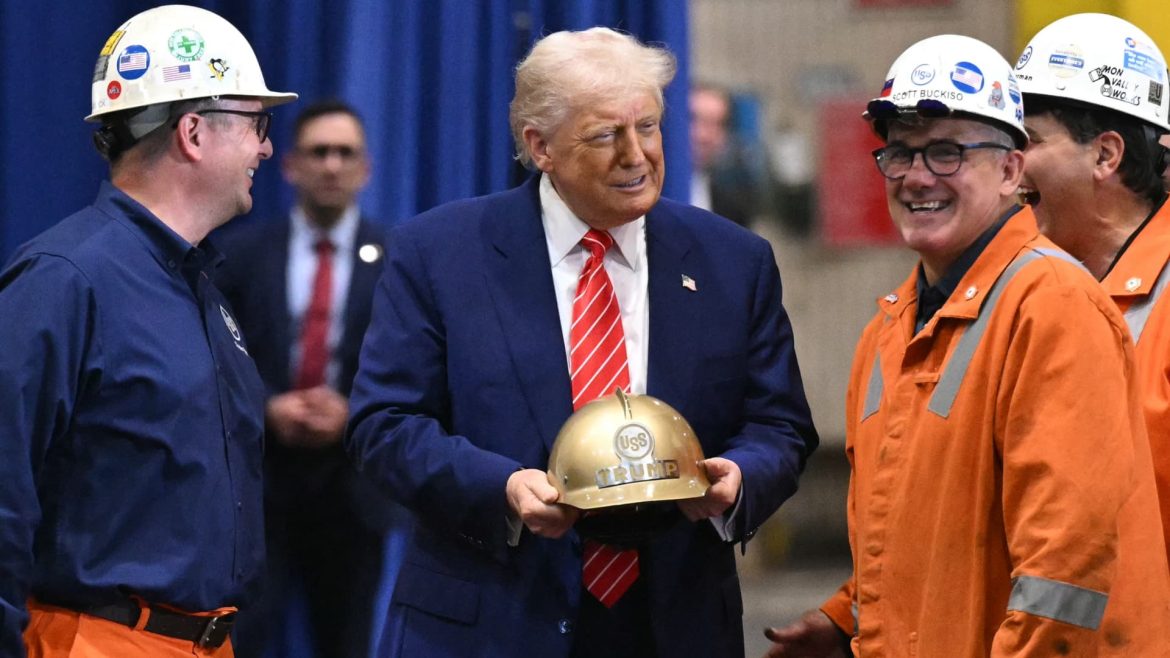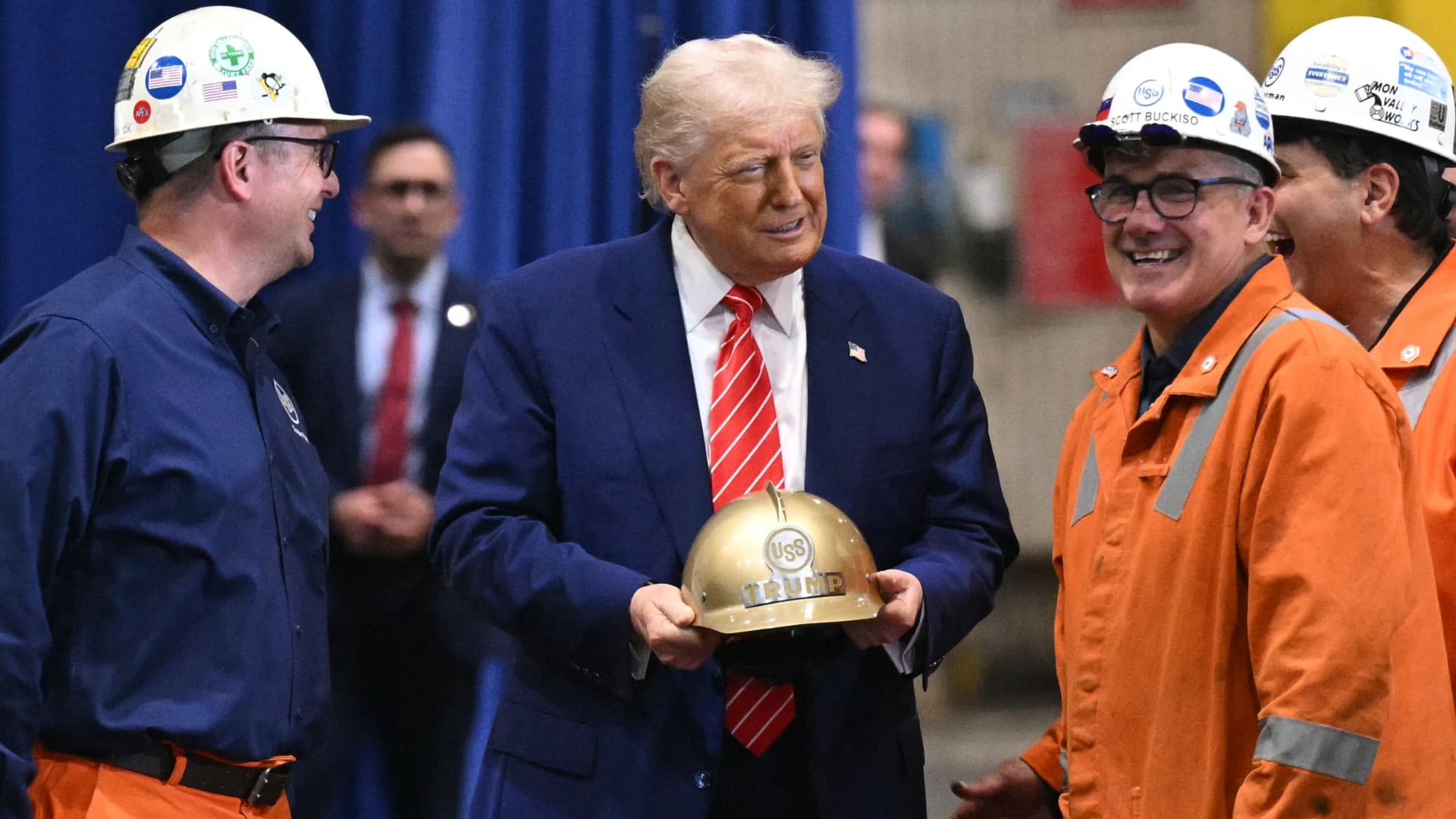A Transformative Pact: The Nippon Steel and U.S. Steel Partnership Approved by Trump
In an impactful move with significant implications for the steel industry and the broader U.S. economy, President Donald Trump has endorsed the partnership agreement between Japan’s Nippon Steel and United States Steel Corp (U.S. Steel). This highly anticipated deal, initially met with national security scrutiny, now advances under the auspices of a carefully crafted national security agreement, promising a fusion of American industrial strength and Japanese investment.
Decoding the Deal: Partnership Structure and Ownership
Though often framed as a merger or acquisition, the arrangement is best described as a strategic partnership rather than a straightforward takeover. Nippon Steel will acquire U.S. Steel but with specific governance and operational stipulations that carefully balance control and American interests. Under the terms, U.S. Steel will become a “wholly owned subsidiary” of Nippon Steel’s North American entity, yet the U.S. government secures a “golden share”—a special class of shares granting it veto rights on certain critical decisions.
This golden share mechanism is central to addressing national security concerns. It ensures that even while Nippon Steel holds ownership, sensitive strategic decisions will require U.S. governmental approval, maintaining a firm hand on the steel industry’s direction given its importance to national infrastructure and defense.
National Security Agreement: Safeguards and Commitments
The partnership was only greenlit after Nippon Steel and U.S. Steel entered a national security agreement with the U.S. government. This agreement outlines substantial commitments, including approximately $11 billion in new investments to be deployed by 2028. A significant aspect is the inclusion of an initial investment in a greenfield project—a new facility designed presumably with advanced technologies and sustainability in mind, reinforcing a future-facing approach in the steel sector.
Additionally, this agreement mandates governance stipulations ensuring transparency and shared control, fortifying safeguards against risks tied to foreign ownership of critical industrial infrastructure.
Economic Implications: Job Creation and Growth
President Trump heralded the deal as a “blockbuster agreement” expected to create at least 70,000 new jobs and inject an estimated $14 billion into the U.S. economy. The influx of capital and potential operational expansions aim to revitalize domestic manufacturing capacity at a time when the steel sector faces intense global competition and fluctuating market demands.
This infusion of investment and jobs is seen as a significant win, especially within key steel-producing regions of the United States, with promised modernization and enhanced competitiveness both domestically and internationally.
A Reversal from Previous Policy: Shifting Administration Stances
The approval under Trump’s administration contrasts with prior hesitations during the Biden administration, which initially blocked Nippon Steel’s bid citing national security risks. This shift highlights differing approaches to foreign investments in critical sectors, with the current stance favoring strategic partnerships accompanied by structured security arrangements over outright limitations.
It underscores a nuanced balance between protecting national interests and fostering global economic integration, reflecting evolving geopolitical and economic realities.
Industry and Global Context: What This Means Moving Forward
The Nippon Steel-U.S. Steel partnership signals a potential new chapter in the steel industry, blending international collaboration with domestic protection. By allowing foreign investment under stringent oversight, it might pave the way for more cross-border industrial alliances that combine capital, technology, and expertise while maintaining sovereign control safeguards.
However, this deal also sets a precedent that will likely be scrutinized closely by other industries where foreign ownership intersects with national security concerns. It raises meaningful questions about the future landscape of American manufacturing and the extent to which foreign partners can be integrated responsibly.
—
Conclusion: Navigating a New Industrial Era with Strategic Caution and Optimism
The approval of Nippon Steel’s partnership with U.S. Steel under President Trump marks a watershed moment for American steel manufacturing and economic policy. This deal signifies a careful reconciliation between embracing global investment and guarding national security through innovative governance tools like the golden share.
With substantial investments pledging modernization and job growth, the steel industry looks poised for revitalization. Yet, the arrangement also invites reflection on how the United States will manage foreign participation in critical sectors moving forward, balancing openness with vigilance.
As the global industrial landscape shifts, this partnership stands as a case study—a blueprint for melding economic opportunity with national safeguarding, potentially charting a path for future collaborations that respect sovereignty while engaging the world.





